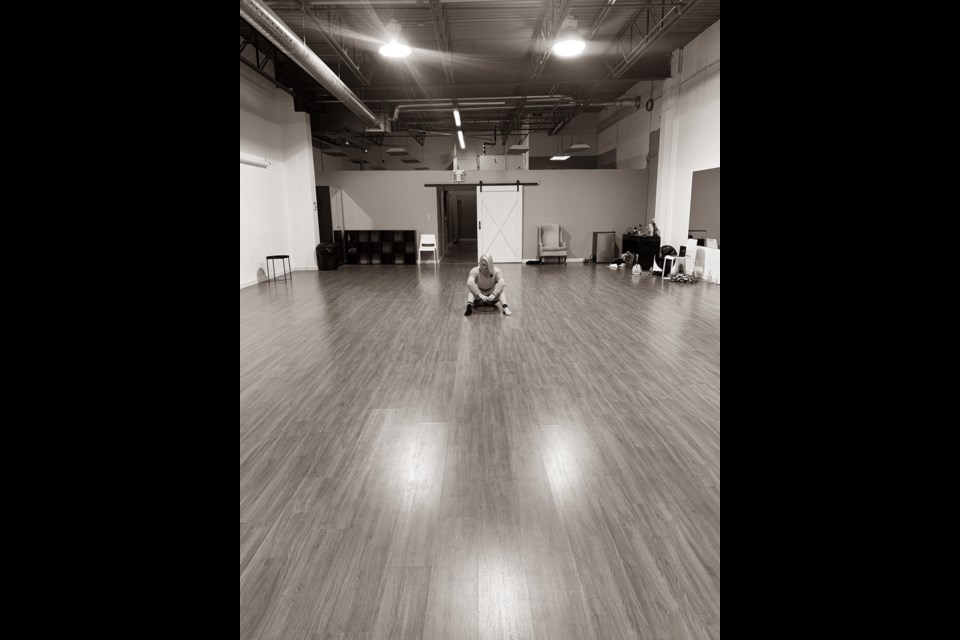As more businesses and services open up from the near four-month COVID-19 shutdown, many in the arts community continue to struggle.
As of Tuesday, the provincial government allowed every region in Ontario to enter Stage 2 of the reopening plan. Stage 3 is already being looked at, but there is no timeline as of yet.
Even if the next stage were to happen soon, Wendy Graham isn’t sure she and her multipurpose studio would be able to get back to work.
“We have done as many classes online as we can, but it is difficult to do some things we need to,” said Graham. “I feel we’re a very important part of our clients' mental health and the facility is completely safe.”
Safe Haven Studios is an 18+ multipurpose studio for what Graham called “creative expression.” The studio opened in November of 2018 at 250 Innisfil St, and quickly outgrew that space and moved to 347 Bayfield St. in August of last year.
The studio offers adult dance classes, photography, and personal growth and self-confidence workshops, with dance being the largest part of the business.
Safe Haven Studios, through their Army of Sass program, provides a training and performance program for all levels. The program teaches clients dance moves that prepare them for a performance in front of a huge audience.
Graham knows she can’t have a live crowd, but was hoping to get her troupe ready for an online performance of their latest show, which was to be a tribute to the 90s.
“Since closing our doors on March 15 due to COVID-19, we have lost over 90 percent in revenue. As the CERB did assist, I no longer qualify as I am making just barely over the required amount a month,” said Graham.
“We had to cancel one of our three annual shows scheduled for March 28 (and) now have to cancel our second show scheduled for July 25. These shows are a big part of our revenue, which we are now expecting an additional 80 percent in loss, even if we do get to record and stream it.”
While she understands why the government is choosing to open in phases based on risk, Graham believes there is no reason why she shouldn’t be able to operate her business while following all public health guidelines.
“I operate a 2,265-square-foot location, with current class sizes that are no more than 10 and that we have been running virtually since March,” said Graham. “I have spent hundreds of dollars on PPE, and cleaning supplies. I have a COVID-19 Health and Safety Guideline ready to go and the entire facility has been disinfected.”
Graham has plans in place for a full disinfection between any and all classes and said she has full control over who enters the facility at all times.
“We are not open to the general public and all our classes are pre-registered and are the same group attending the same class each week,” said Graham.
Graham worries about the mental health of her clients who she feels need this outlet more than ever to cope with fallout from the current health crisis.
“The arts, including dance, are a huge part of what helped keep spirits alive during quarantine. Online fitness classes, choirs, online dance classes, theatre, etc.,” said Graham. “So why are the arts and fitness being left behind? Why are we the last to be allowed to open?
"I have personally watched many local fitness and arts facilities already decide to close their doors, and it deeply saddens me. We need these businesses to survive, or what will happen to our community?" she wonders.
On May 8, minister of heritage of sport, tourism and culture industries Lisa MacLeod announced that as of that day, “professional sport training facilities will be permitted to reopen, provided their respective sports leagues have established health and safety protocols in response to COVID-19.”
The Toronto Blue Jays are training in Toronto and the city was also allowed to host the upcoming Eastern Conference of the NHL playoffs, with several teams entering the area.
“Provincial level sports are allowed to train, gymnastics, hockey, etc. But again, the arts are being completely left behind, and I find it unfair, and discriminatory. Why are we different?” wondered Graham. “When the announcement was made that some restrictions for indoor recreational facilities were being lifted, we got excited. Until we realized that it was only for amateur or competitive sports, which if you ask me, seems contradictory to opening businesses based on risk.”
Graham said she believes that “all the activities that provide the most money to the province are the ones being allowed to open, and that is completely unfair.”



